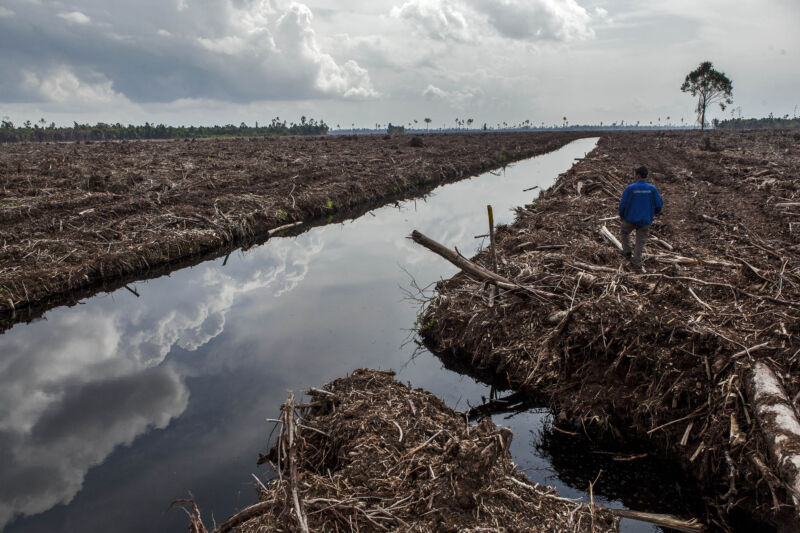
Enlarge / A forest activist inspects land clearing and drainage of a peat natural forest in Riau province, Sumatra, Indonesia in 2014. (credit: Ulet Ifansasti | Getty Images)
The world has lost a third of its forest since the last ice age, and an estimated 15 percent of global greenhouse gases still come from deforestation and forest degradation.
Now a new pledge made at the COP26 climate conference in Glasgow last month hopes to change this stark picture. The Glasgow Leaders’ Declaration on Forests and Land Use, signed by key forest nations, aims to reduce deforestation to zero by 2030. The pledge has raised hopes that the world would see a fresh impetus to curb the devastating impacts of deforestation.
“If we could get deforestation to zero, it would be an incredible achievement,” says Simon Lewis, a researcher of global change science at the University of Leeds and University College London. “Both in terms of carbon [...] and for biodiversity and conservation, because two-thirds of the world's species are in the world's tropical forests.”
No comments:
Post a Comment